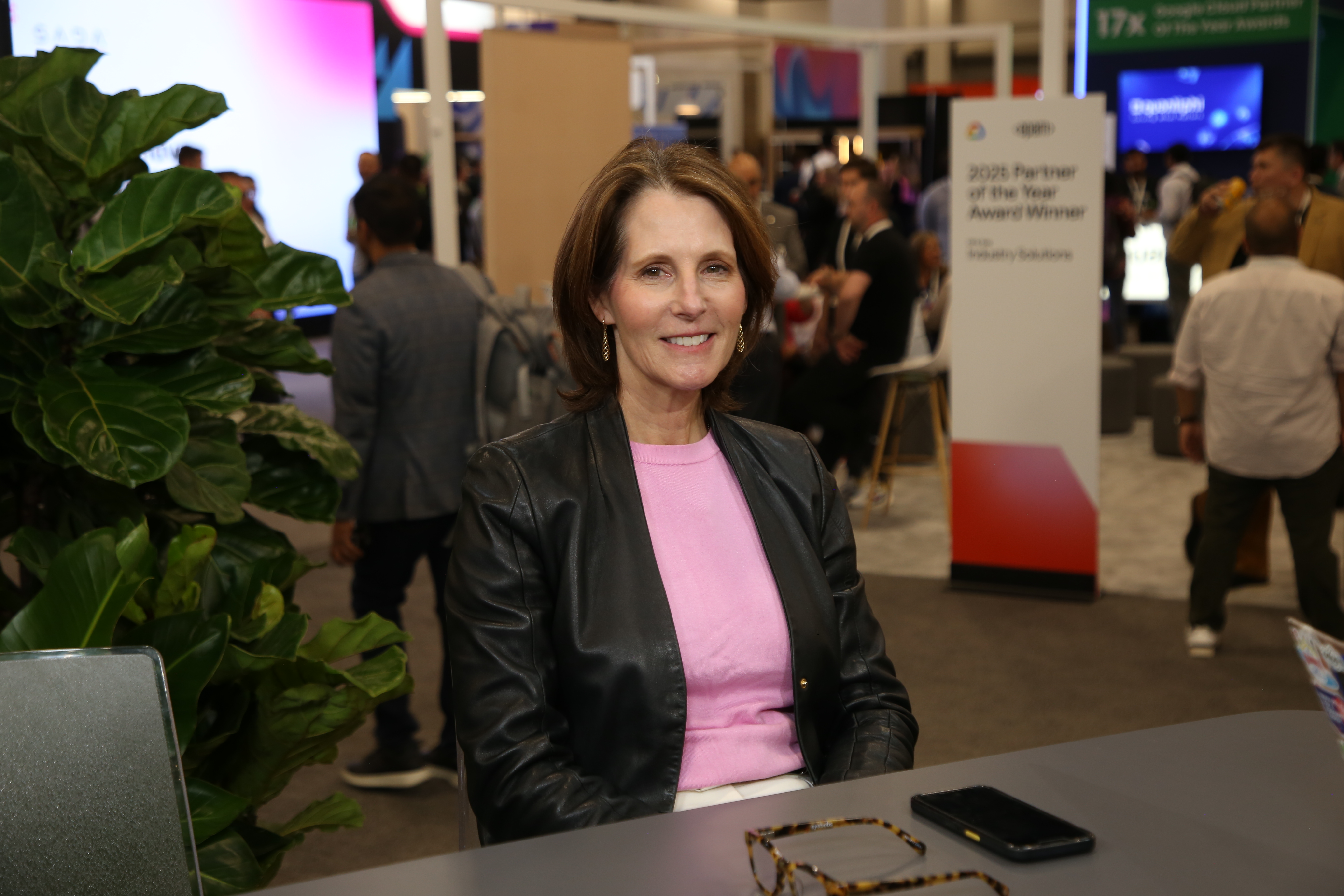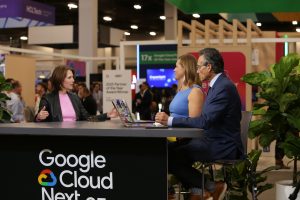 AI
AI
 AI
AI
 AI
AI
Artificial intelligence is redefining enterprise software, and Salesforce Inc. is focused on leading that transformation.
The company is deepening its investment in enterprise-ready AI architecture through a combination of expanded capabilities in its Agentforce offering and a growing partnership with Google Cloud, according to Susan Emerson (pictured), senior vice president for AI product and global COE at Salesforce.

Salesforce’s Susan Emerson talks with theCUBE about the company’s new agent-to-agent interoperability framework.
“We’ve just had tremendous momentum since that launch, and I think we really caught the market at just the right time,” she said. “The way the product is architected … it starts with this concept of a role or a job to be done or a digital task. It’s like what you need the thing to do or the thing to support the human. Adjacent to that is the data that they need to know, the data about the customer, the data about policies [and] the data about products.”
Emerson spoke with theCUBE’s Dave Vellante and Savannah Peterson at Google Cloud Next, during an exclusive broadcast on theCUBE, SiliconANGLE Media’s livestreaming studio. They discussed Salesforce’s approach to agentic AI, its collaboration with Google Cloud and the company’s new agent-to-agent interoperability framework. (* Disclosure below.)
At the heart of Agentforce is a flexible architecture that makes it easier for enterprises to define and deploy intelligent agents across a range of tasks. The product ties together roles, data and actions with instructions and guardrails to prevent drift and ensure reliability. That level of clarity in Salesforce’s AI architecture has expanded what customers feel confident pursuing with AI, according to Emerson.
“What was very next level for people was the ability to add guardrails and instructions, because so many people at that point in their AI journeys were managing for control and hallucinations,” she said. “That simple architecture opened the minds of everyone in terms of, ‘We can go further than we thought. The use case list is wider.’”
Salesforce’s partnership with Google adds another layer of sophistication, according to Emerson. Through its integration with Google Gemini, Agentforce supports multimodal capabilities and advanced reasoning, while also extending Salesforce’s AI architecture with open, flexible large language model support.
“Within our Agentforce product, we’ve been working with Gemini as one of the options to power the AI user experiences,” Emerson said. “One of our foundational principles is around open and future-proofing … Gemini, to power our experiences: We’ve been doing that for quite some time around prompt engineering.”
Salesforce is also building toward more connected processes through an agent-to-agent framework. This framework allows intelligent agents to interact and share information across systems, extending AI-driven workflows beyond Salesforce’s own tools and domains, according to Emerson.
“Let’s say it’s that connected device thing … and then you’re in the land of other process silos,” she explained. “What if you had to get deep into a supply chain and that supply chain was in a different ecosystem and you had this agent-to-agent cross-boundary interoperability where each agent has essentially a business card of, ‘Here’s who I am, here’s what I know, here’s what I’m permissioned to do.’ That’s been in the land of [application programming interfaces] for a long time, but this whole new ecosystem will allow for scale, inter-op and just time money takeout.”
Looking ahead, enterprise leaders need to move beyond experimentation and focus on scaling AI projects into production, according to Emerson. The technology is ready, and the customers who recognize its business value are ready to act.
“What I hope is that we have even more examples of what we saw on the stage today,” she said. “It’s a rally cry, a call to action that this is the year of production scale, folks. Stop messing around with points of concepts you don’t care about. Find something to fix in your business and go because the technology is ready.”
Here’s the complete video interview, part of SiliconANGLE’s and theCUBE’s coverage of Google Cloud Next:
(* Disclosure: Salesforce Inc. sponsored this segment of theCUBE. Neither Salesforce nor other sponsors have editorial control over content on theCUBE or SiliconANGLE.)
Support our mission to keep content open and free by engaging with theCUBE community. Join theCUBE’s Alumni Trust Network, where technology leaders connect, share intelligence and create opportunities.
Founded by tech visionaries John Furrier and Dave Vellante, SiliconANGLE Media has built a dynamic ecosystem of industry-leading digital media brands that reach 15+ million elite tech professionals. Our new proprietary theCUBE AI Video Cloud is breaking ground in audience interaction, leveraging theCUBEai.com neural network to help technology companies make data-driven decisions and stay at the forefront of industry conversations.